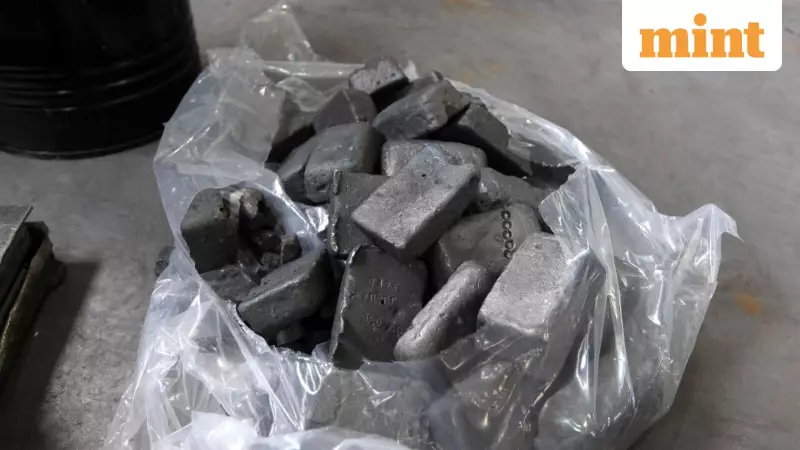
In a strategic move that could reshape global supply chains, China is developing a new export control system that would streamline rare-earth shipments to civilian companies while deliberately excluding entities with ties to the US military. This "validated end-user" approach represents Beijing's latest gambit in the ongoing trade tensions between the world's two largest economies.
The Validated End-User System Explained
According to sources familiar with the matter, Beijing's proposed validated end-user (VEU) system would create a two-tiered approval process for exports of rare-earth minerals and other restricted materials. Companies deemed friendly to Chinese interests would receive fast-tracked export approvals, while those with defense connections would face significant barriers.
The system, if implemented strictly, could create substantial challenges for automotive and aerospace companies that serve both civilian and military clients. These industries rely heavily on rare-earth magnets for everything from electric vehicles to passenger jets, but the same technology is equally crucial for advanced weapon systems including jet fighters, submarines, and attack drones.
Modeled After US Export Controls
Ironically, Beijing's proposed system takes direct inspiration from American export control mechanisms. The United States has operated its own VEU program since 2007, which allows pre-approved Chinese companies to import sensitive goods under general authorization rather than requiring individual licenses for each transaction.
Under the American system, participating companies benefit from simplified procedures but must submit to US government inspections and compliance verification. Beijing appears to be turning the tables with its own version, though many details remain unclear—including which companies would qualify for general licenses and how long such privileges would last.
Trade War Context and Recent Developments
The VEU proposal emerges against the backdrop of escalating trade tensions between Washington and Beijing. Since April, China has strategically deployed restrictions on rare-earth magnet exports to extract concessions from the United States.
The October 30 truce between President Trump and Chinese leader Xi Jinping produced commitments from both sides to ease trade restrictions. While Trump has characterized China's promise to issue general licenses as effectively ending export curbs on critical materials, Beijing appears to be maintaining some controls even as it facilitates exports for verified civilian用途.
Recent trade data underscores the ongoing impact of these restrictions. Chinese exports of rare-earth magnets to the United States declined by 29% in September compared to August, indicating that curbs continued to affect businesses in the weeks leading up to the truce announcement.
Global Implications and Business Response
The proposed system reflects China's careful balancing act—honoring diplomatic commitments while protecting national security interests. For global businesses, the uncertainty surrounding China's export controls has already prompted diversification efforts.
Companies in both the United States and Europe have reported reduced access to rare-earth magnets in recent months, driving increased interest in alternative sources and supply chain restructuring. Many firms may continue pursuing non-Chinese suppliers even if they qualify under the new VEU arrangement, given the program's potential volatility.
Beijing's experience with the American VEU system, where Chinese companies have sometimes had their clearance revoked unexpectedly, has created wariness about relying too heavily on such arrangements. This caution may influence how both Chinese authorities design their system and how international businesses respond to it.
The Chinese Ministry of Commerce has not commented publicly on the proposed VEU system, and sources caution that the plan could still undergo significant changes before implementation. What remains clear is that rare-earth minerals—once an obscure specialty of materials science—have become central pawns in the high-stakes game of international trade and geopolitical competition.






